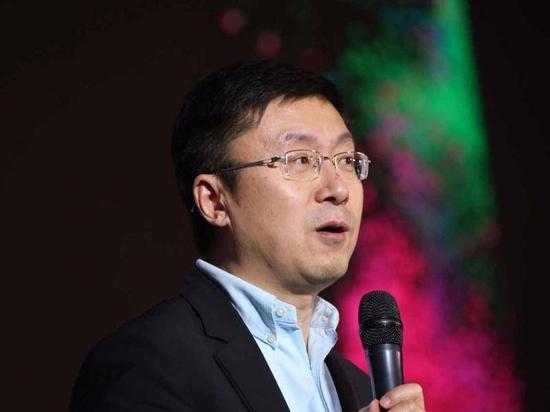
After the release of "China's Hip-Hop," iQiyi made a comeback—but not because of the show. This time, it's all about its latest financial moves. On the 26th, Bloomberg reported that Baidu’s video platform, iQiyi, is considering an IPO in the U.S. as early as next year, with a potential valuation exceeding $8 billion. In response, iQiyi remained tight-lipped, saying, “We don’t comment.â€
However, according to insiders, Baidu is already in talks with investment banks, aiming for a valuation of up to $10 billion. The company hopes to maintain control through its dual-class stock structure after the IPO. That said, the plan is still in the early stages, and the final valuation could still change.
In fact, the idea of an iQiyi IPO has been circulating since 2015, popping up every so often like a recurring rumor. While the figures may vary, the outcome has always been the same—nothing concrete ever came out of it.
These rumors aren't entirely baseless. For a long time, iQiyi has struggled with funding shortages and competition anxiety, which many believed could only be resolved by going public.
Is iQiyi’s adult ceremony just one IPO away?
To start with, let’s take a closer look at the history of these rumors.
Originally known as Fantastic Art, iQiyi was launched on April 22, 2010. Baidu became its largest shareholder in 2012, and in 2013, it merged with PPS to form iQiyi. After Alibaba privatized Youku, Baidu also tried to acquire iQiyi.
During the 2016 Spring Festival, both Baidu’s Li Yanhong and iQiyi’s Gong Yu extended a buyout offer, acquiring 80.5% of the shares together.
Many saw this as a way for iQiyi to return to the domestic capital market, but the plan faced major setbacks. First, the Strategic Emerging Plan was canceled, and the idea of going public was quietly dropped. Second, the buyout collapsed in July 2016 due to disagreements over price and structure. A key reason was that Acacia Partners, Baidu’s largest shareholder, believed the $2.8 billion buyout was too low and pushed for its cancellation.
A few months later, there were rumors that Baidu planned to spin off iQiyi in Hong Kong or the U.S. in 2017, aiming to raise about $1 billion. At the time, iQiyi was valued at $5 billion, but Baidu quickly denied the reports.
Last year, Baidu officials confirmed that the IPO rumors were false and that no timetable existed for listing. But in early 2017, the news resurfaced again. The Wall Street Journal reported that iQiyi would go public in the U.S. with a $5 billion valuation and aim to raise $1 billion.
This seemed to have some truth behind it, as iQiyi recently raised $1.53 billion through convertible bonds, confirming the earlier reports. Now, in September, the IPO news is back. Whether it will happen this time remains uncertain. However, industry insiders say iQiyi is seriously considering the move, and some even claim it’s just one IPO away from becoming a true independent player. With pressure from Tencent and Youku, going public might be the best way to ease its financial stress.
Why is iQiyi constantly in the spotlight for IPO rumors when other video platforms aren’t?
The answer is simple: iQiyi has been losing money for years. It needs to improve its financial health through an IPO to ensure sustainable growth.
iQiyi has never publicly disclosed its financial details. From Baidu’s reports, we know that iQiyi lost 2.765 billion yuan in 2016, and total losses from 2013 to 2016 reached 7 billion yuan. In 2017, Gong Yu even promised to invest 10 billion yuan. With rising copyright costs, losses are likely to grow, not shrink.
The losses themselves aren’t the biggest problem. What’s more concerning is the lack of a stable funding source. Although Baidu values iQiyi, its support has been limited. Plus, the traffic it once relied on from Baidu’s mobile platform has declined. Faced with these challenges, iQiyi now has to stand on its own and manage its profits and losses independently.
Despite its struggles, iQiyi must also compete against strong rivals. Both Tencent Video and Youku have deep pockets, backed by massive cash reserves from Tencent and Alibaba. They are willing to spend heavily to win market share.
For example, Tencent spent over 800 million yuan on TV dramas like “Ru Bi Chuan†and “Win the World,†while Alibaba paid over 480 million yuan for similar content. In the variety show space, both platforms have been aggressively acquiring top-tier rights.
With such fierce competition, iQiyi has been hesitant and slow to expand. Even though it still holds the top position, the market is changing fast, and falling behind could happen in an instant.
According to iResearch, in August of this year, iQiyi ranked first in the video category with 610 million active devices, while Tencent Video followed with 570 million. However, in the quarter-over-quarter growth, iQiyi increased by only 0.6%, compared to Tencent’s 4.1%. The gap is shrinking rapidly.
iQiyi knows exactly what kind of environment it's facing. Accessing the capital market and building a sustainable financial system is the only way to ease its current financial strain and keep up with the competition.
iPad Stylus Accessories,Smart Pen Accessories,Capacitive Stylus Accessories,Stylus Pen Accessories for Touchscreen,Active Stylus Pen Accessories
Shenzhen Ruidian Technology CO., Ltd , https://www.wisonen.com